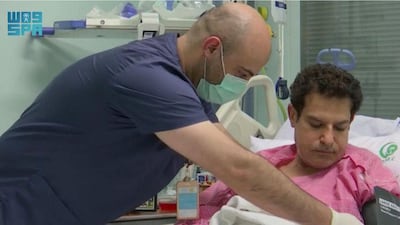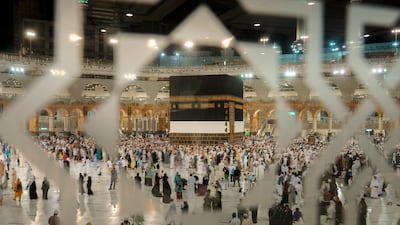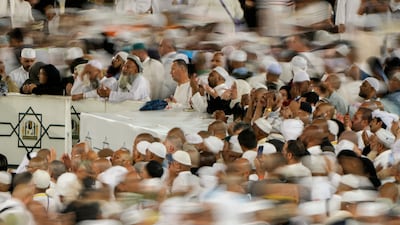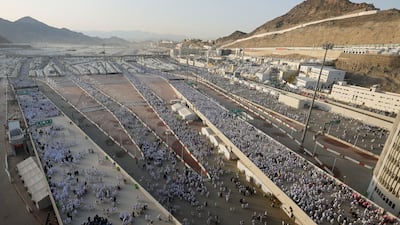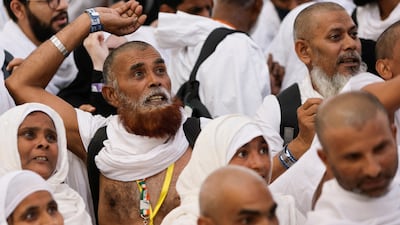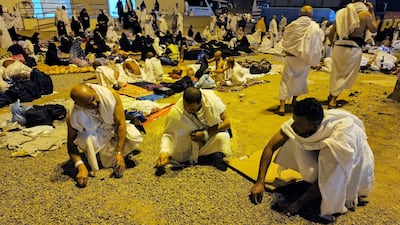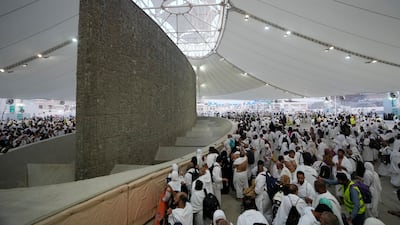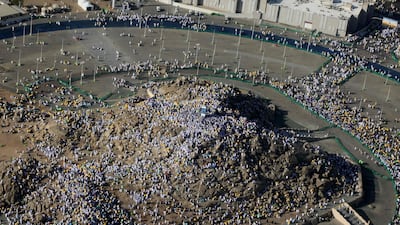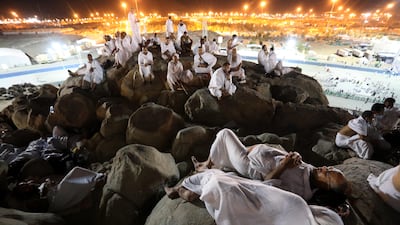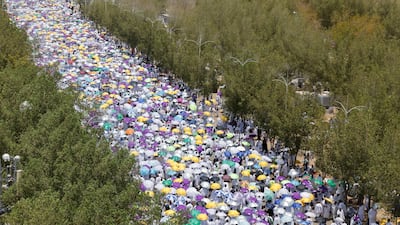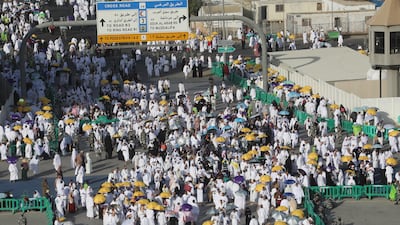Doctors in Makkah have saved an Iranian medical official who had a heart attack while performing Hajj rituals.
The Saudi Ministry of Health said staff at King Abdullah Medical City on Sunday treated Mohammad Reza Gholamreza Refatiani, 60, who is the head of the Iranian medical mission that accompanied the country’s Hajj delegation this year.
Mr Refatiani was first taken to Ajyad Hospital, complaining of chest pains. He was then taken to King Abdullah Medical City where doctors performed a first catheterisation procedure.
This opened the posterior left coronary artery, which had been widened and stented, according to the ministry.
"After doctors noticed that Mr Refatiani’s pain persisted, a second catheterisation operation was performed to expand the left anterior coronary, remove the stenosis he suffers, and place a stent using the latest advanced technology represented by video technology for coronary arteries,” the ministry said.
Mr Refatiani left the hospital after his condition improved and thanked the Saudi medical staff who supervised his treatment.
Dr Mohammed Al Ateen, a consultant cardiologist who attended to the case, pointed to the effectiveness of the emergency system in place to serve pilgrims, which enables the quick transfer of people to hospital after the appearance of symptoms of a severe heart attack.
King Abdullah Medical City doctors also treated a German pilgrim and a 54-year-old Syrian, who suffered heart attack on July 8.
On July 7, the medical teams from the hospital treated a Nigerian pilgrim in his thirties who was suffering from severe heart palpitations and a sharp drop in blood pressure that led to cardiac arrest in a rare and serious case.
He was resuscitated by emergency teams after his heart stopped beating, and an operation was performed to urgently treat his condition, SPA reported. The successful surgery enabled him to complete his Hajj.
Heart specialists at King Abdullah Medical City were also successful in treating Hussain Qasmi Jalmrazy on July 2, who complained of severe chest pains. Mr Jalmrazy was able to continue performing Hajj rituals after the procedure.
The Ministry of Health said on Sunday that 10 open-heart surgeries and 187 cardiac catheters had been performed by Saudi cardiac doctors since the start of Hajj, and that the ministry was able to provide health services to more than 93,229 pilgrims this Hajj season, through hospitals and health centres in Makkah, Arafat, Muzdalifah, Mina, Jamarat and Taif.
